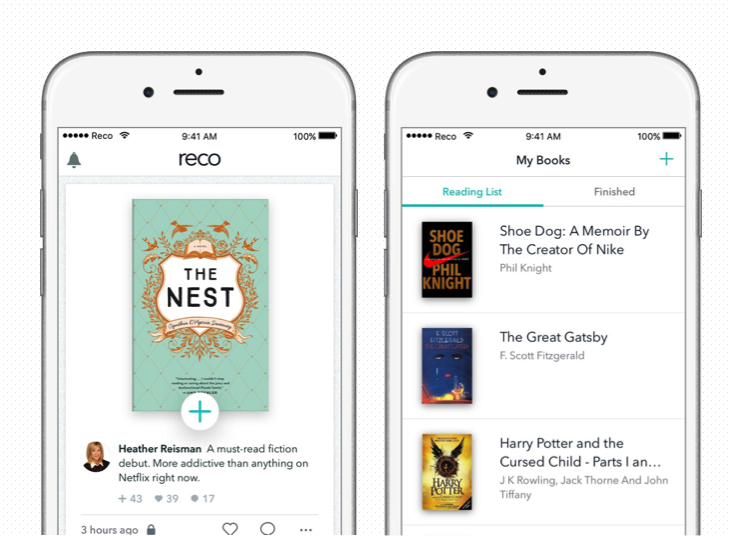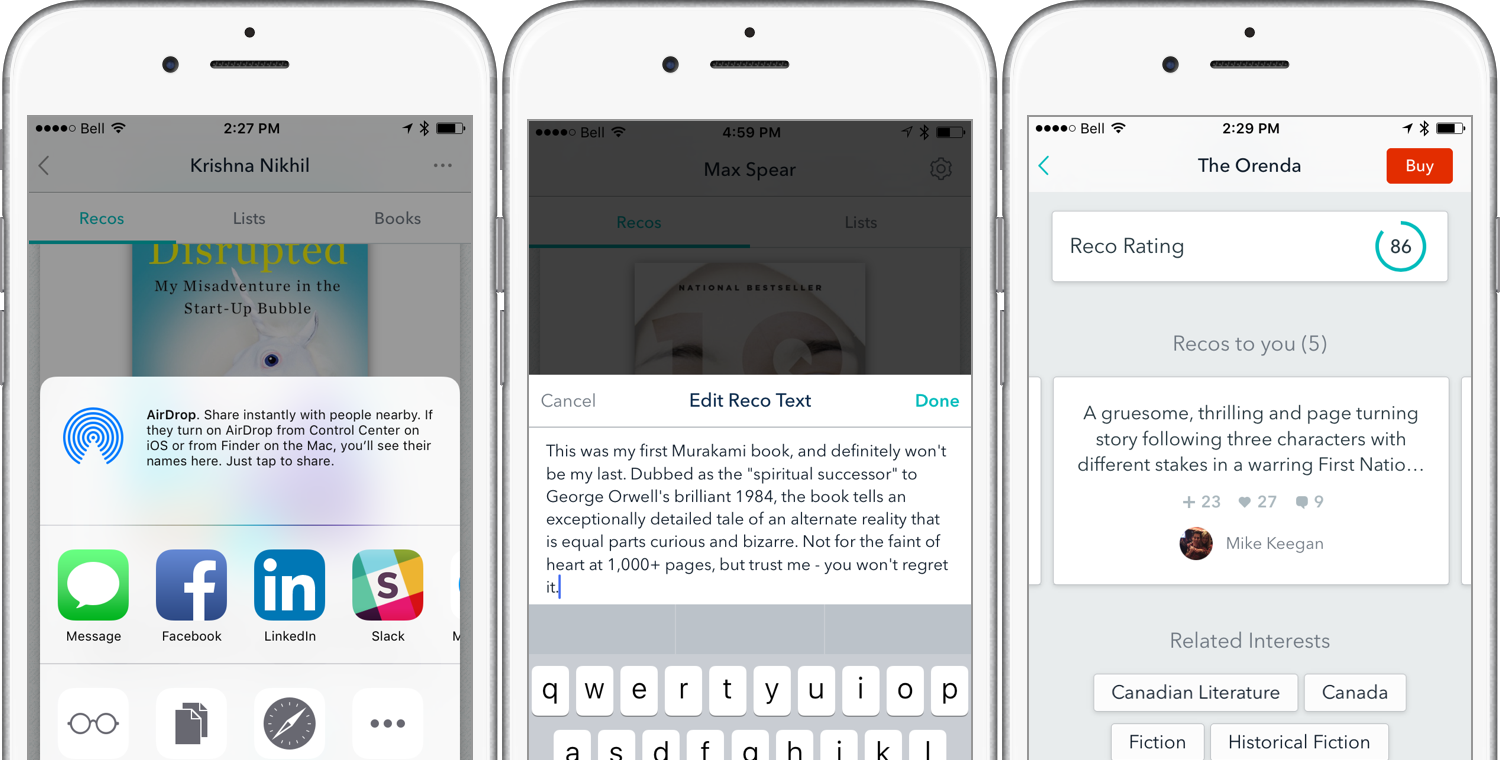I still love books, and I still have a fair amount of trouble finding new ones to read that I’ll actually enjoy. Helping with discovery is the idea behind Reco, a new mobile app from Canadian bookseller and retailer Indigo, which provides users with a social network based around books, and people’s love thereof.
“We have a kind of obsessive focus on who our customers are, and what they really value,” Indigo CEO and Reco co-founder Heather Reisman told me in an interview. “For the longest time, we’ve all been saying to each other that there is simply nothing better than a recommendation from someone you truly trust. There is nothing better than having someone who you trust, either a very good friend, or someone who’s an expert in an area that you’re interested in, say to you, read this book, it is irresistible ”
 Reco is designed to provide a platform where you can get exactly that kind of guidance on your reading list, in a way that, according to Reisman, involves as little stress as possible. Reisman says the reason people are looking for books to read to begin with is often to alleviate stress, so the process of discovery, as well as the process of making reading lists and recalling which books you meant to pick up, should be as frictionless as possible.
Reco is designed to provide a platform where you can get exactly that kind of guidance on your reading list, in a way that, according to Reisman, involves as little stress as possible. Reisman says the reason people are looking for books to read to begin with is often to alleviate stress, so the process of discovery, as well as the process of making reading lists and recalling which books you meant to pick up, should be as frictionless as possible.
In fact, that’s part of the reason why Reco exists as its own, standalone mobile app (on iOS currently, with an Android launch targeted for fall). Facebook, Slack and other existing social platforms have offered ways for people to share and recommend books in the past, but Reco wants to cut out the noise, giving you a self-selected community focused on books exclusively.
“Facebook does all kinds of things, you’ve got lots of people on your network there, you have your grandmother, your sister, your aunt, etc.” Reisman explained. “This is your place just for this one focus. Very simple, very easy, and you don’t have to get involved in all kinds of other things.”
Goodreads is another social network focused on very similar things, of course, but the network was born prior to the mobile era, and what Reco offers is a cleaner design, with a simpler interaction model and a greater focus on recommendations from your hand-picked network, as opposed to impersonally curated collections. Reco wants to essentially get out of the way of book recommendations, letting users themselves handle any and all content recommendations.
What Reco does offer is a sign-up flow that lets you connect your Facebook account to find people to add to your own network, as well as recommendations based on genre and more interests you select. Books from your network are then presented in a home feed, with large card-style panels that each take up the majority of your display, with a book cover image and a brief paragraph explaining why the person made the recommendation.
Users can heart or comment on any reco, as well as add the book to their own list, and metrics for all of the above are displayed on each. You also can tap through to view who exactly liked the recommended title, and who added it to their own list, which can either provide more insight into whether it’s something you’d like, or help you find other Reco users with similar tastes to follow.
The app is free, but users can purchase books directly using unobtrusive links for each recommendation, which generates a commission back to Reco. In Canada, Reco uses Indigo and Kobo to complete the transactions, while in the U.S., Barnes & Noble, Amazon, iBooks and Kobo are the selling partners, and Reisman says the intent is to add even more providers.
Reco has been available for a short while through an earlier soft-launch, but Indigo EVP of Print and Strategy and Reco co-founder Krishna Nikhil says around 40 percent of users are active every two days, and generally individual users are using it about 20 times per month, which is high, given that the primary purpose behind the app is to drive people to books that should keep them busy for a while before they need another recommendation.
As a company, Indigo has made interesting bets on tech plays like this before: Kobo began life as an internal startup at Indigo, before being spun out and eventually acquired by Japanese e-commerce company Rakuten. Reisman says that Indigo is definitely open to starting up or incubating tech startups in the future, provided their goals align with Indigo’s core interests. It’s a refreshing approach by a company that could’ve easily been steamrolled by drastic changes in the retail market, and one that hopefully will bear interesting results in the future, too.


